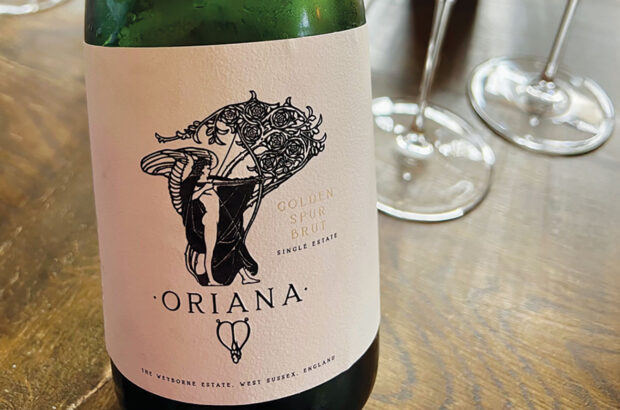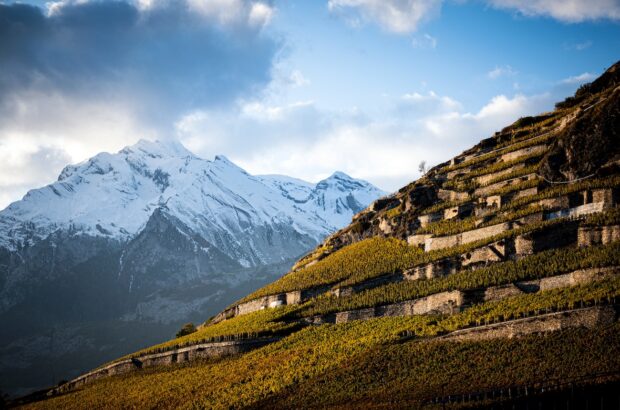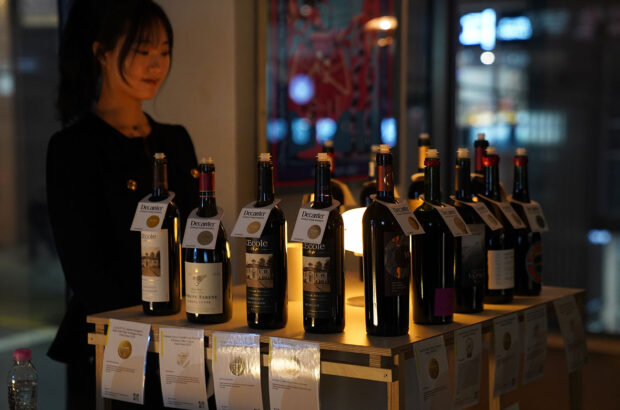In partnership with Beykush Winery, Big Wines and SHABO
Alla Plachkova
Dressed in a pink shirt and a jaunty hat of the same colour, and offering the most inviting of smiles, Alla Plachkova passionately recounts the history of her family winery. She talks about the local wine industry and Ukraine with an infectious enthusiasm: if this is the face of Ukraine’s wine future, it’s as bright as the fuchsia of Plachkova’s ensemble.

Alla Plachkova, co-owner of Kolonist, one of the producers responsible for a new wave of Ukrainian wines.
Along with her husband, Plachkova is the owner of Kolonist, one of the producers responsible for a new wave of Ukrainian wines. She currently resides in her native Bulgaria with her two young daughters to provide them with a safe and stable environment, and she is immensely proud of her stepson, a young man in his 20s, who is serving in the Ukrainian military. ‘Bombs still frequently pass above our team while they are working in the vineyards,’ Plachkova explains. While the war has thrown up many obstacles, she is determined not to lose time: ‘We will keep ploughing ahead and forging a future. The war has had a terrible impact on the country, but it has opened a window onto Ukrainian wine.’

Olga Stoyanova, head winemaker at SHABO, one of Ukraine’s biggest wineries.
Olga Stoyanova
Olga Stoyanova, head winemaker at SHABO, one of Ukraine’s biggest wineries, feels that women have been a crucial part of the country’s wine industry for quite some time. ‘I think this is because once winemaking was not taken seriously by men as a main job – it was more like a hobby. As the modern resurgence in Ukrainian winemaking is quite recent, it is only in the last few years that the profession
has been taken seriously.’
SHABO is also looking to the future. ‘We’re moving forward! I am very happy that Ukrainian wines do not stand on the spot,’ Stoyanova explains, ‘as the culture of wine consumption has grown a lot.’

Nataliia Burlachenko, CEO/Co-Founder, Big Wines and Brand Ambassador, Vinos de La Luz.
Nataliia Burlachenko
Nataliia Burlachenko certainly turned adversity into an opportunity. After the 2022 invasion, she spent time in Spain learning all the processes involved in wine production, from the vine to the bottle, and took that experience back to Ukraine to set up a new project: Big Wines, part of the Vinos de La Luz group. ‘It was my way of doing something strong to show that the spirit of winemaking and vinegrowing is still alive,’ she explains, ‘and what’s more, it is developing.’ Alongside Ricardo Fernándo Núñez, owner of Vinos de La
Luz , Burlachenko was also instrumental in reinstating Ukraine as a member state of the International Organisation of Vine and Wine (OIV), which has boosted support for and recognition of the country’s winemaking industry.
Women are increasingly dominating key positions within Ukrainian wine. With many men away fighting, Burlachenko explains, women have taken up key roles. ‘Now, a lot of women in Ukraine understand that it’s OK to work in agriculture, in viticulture or as a wine producer. In wine you have to be strong, sensitive and flexible, and these are characteristics that our women have.’

Svitlana Tsybak, CEO of Beykush Winery and head of the Ukrainian Association of Craft Winemakers.
Svitlana Tsybak
CEO of Beykush Winery and head of the Ukrainian Association of Craft Winemakers, the irrepressible Svitlana Tsybak works with Wines of Ukraine to promote the country’s wines internationally. Her husband is serving on the front line, so there are long stretches of time when they can’t be in contact. How does she cope with this stress?
‘It is easier when I’m working, working, working, because then I don’t have so much time to think about it.’ She certainly has her hands full: Tsybak has been pivotal in promoting Ukrainian wines beyond their borders, travelling constantly to spread the message of her country’s wine to international consumers. Before the 2022 invasion, the government provided support for wineries to explore new markets; but even once those resources were redirected to the country’s defence, Tsybak continued to promote Ukrainian wine abroad.
‘The idea blossomed before war, but it forced us to look outside.’ She continues to travel, and now focuses on showing producers how to develop further: ‘Wineries need to understand every process and how to pitch for business in domestic and foreign markets.’ With improving quality and a focus on local varieties such as Odesa Black and Telti-Kuruk, Ukrainian producers are carving out a distinctive national identity. Perhaps Tsybak best sums up the passion and positivity of these very determined women: ‘Every day when you wake up you ask yourself, what can I do for my country? My sphere is wine, so I focus on improving winemaking and the image of Ukraine.’







